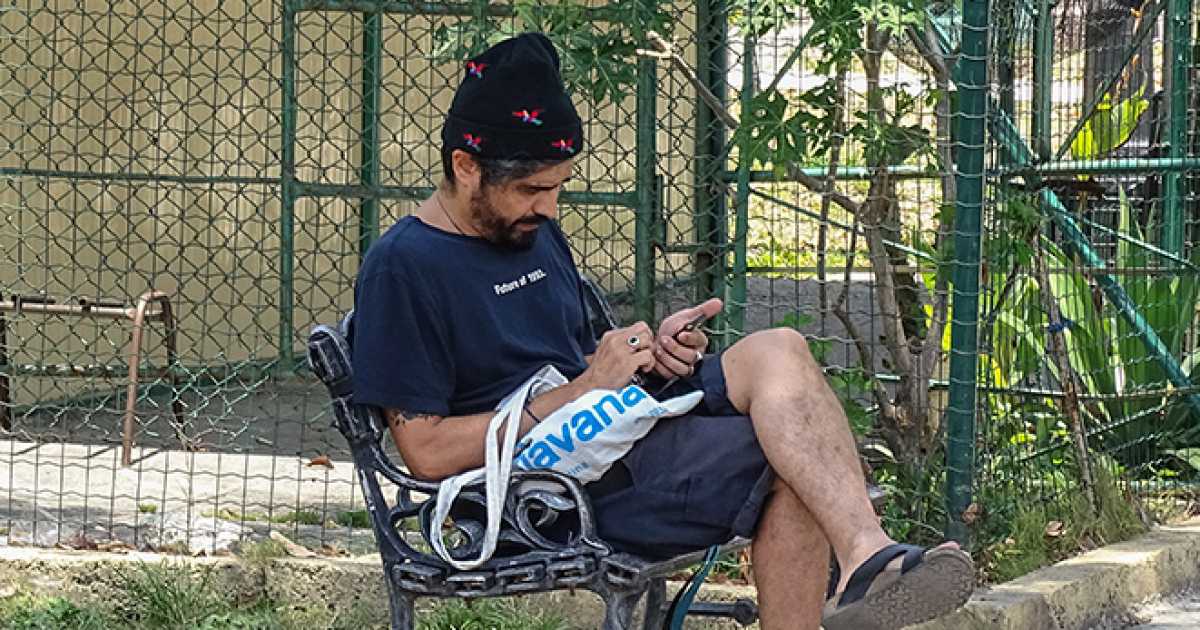Cuba's Supreme Court has firmly denied the rumors circulating on social media about plans to monitor, record, or intercept phone calls and messages across the island. In a statement posted on its official Facebook page, the institution labeled the information as "entirely false," dismissing it as misleading and intentionally deceitful.
The court urged citizens to disregard these rumors and rely only on official channels for information. It highlighted that this misleading message was previously circulated on November 18, 2024, with the same goal: to publicly undermine the credibility of state institutions.
Despite the prevalence of state security agencies in Cuba that specialize in citizen surveillance, the Supreme Court asserted that there would be no implementation of regulations for comprehensive monitoring, surveillance, and recording of all calls and messages.
This statement was issued in response to an audio message that recently spread via messaging apps, where a female voice claimed that the state would start recording "everyone and their messages." The message also suggested that WhatsApp conversations would be logged, warning people to be cautious about what they write.
The audio further advised listeners to inform "friends," particularly those with "significant business ventures." Although the Supreme Court has publicly denied plans for mass surveillance, concerns about state monitoring are deeply rooted in Cuba.
Recent statements and policies have heightened the perception of citizen control mechanisms. A State Security colonel recently stated on national television that their operations prioritize defending the Revolution over legal constraints, emphasizing an autonomous and unchecked approach.
On the same day, leader Miguel Díaz-Canel publicly supported the state security apparatus, claiming it is "respected and admired worldwide." These remarks came amid growing criticism of the repressive role of the security system in everyday life, especially concerning monitoring dissenters, activists, and independent journalists.
Legal precedents also feed into public apprehension. In November 2019, the Cuban regime enacted a decree that legitimizes mass surveillance of digital networks, granting authorities broad powers to intercept electronic communications without specific judicial oversight.
This measure faced strong criticism from international governments and organizations, including the United States, which warned of setbacks in privacy and civil rights on the island. These instances highlight that, beyond official denials of rumors, there are institutional, normative, and rhetorical factors that have fueled public distrust regarding the privacy of their communications.
Understanding State Surveillance Concerns in Cuba
What did the Supreme Court of Cuba say about the rumors of mass surveillance?
The Supreme Court of Cuba denied the rumors, stating that there are no plans to monitor, record, or intercept phone calls and messages across the island. They described the information as "entirely false" and urged citizens to seek information through official channels.
Why are there concerns about state surveillance in Cuba?
Concerns stem from recent statements and policies that suggest state security agencies operate with considerable autonomy and without clear legal constraints. Additionally, a 2019 decree allows for mass surveillance of digital communications, which has reinforced fears about privacy violations.
How has the international community reacted to Cuba's surveillance policies?
The international community, including the United States, has criticized Cuba's surveillance policies, warning that they represent a setback in privacy and civil rights. The policies have been condemned for granting authorities extensive powers to monitor communications without specific judicial oversight.
